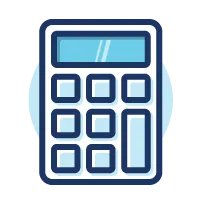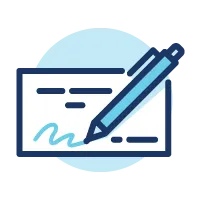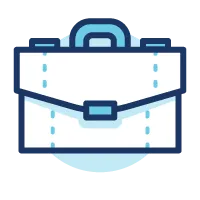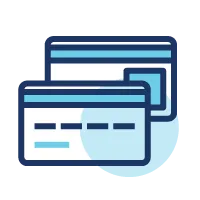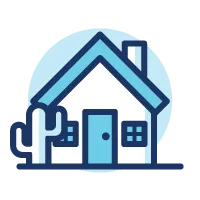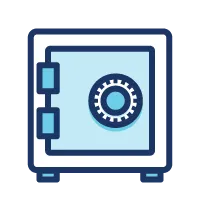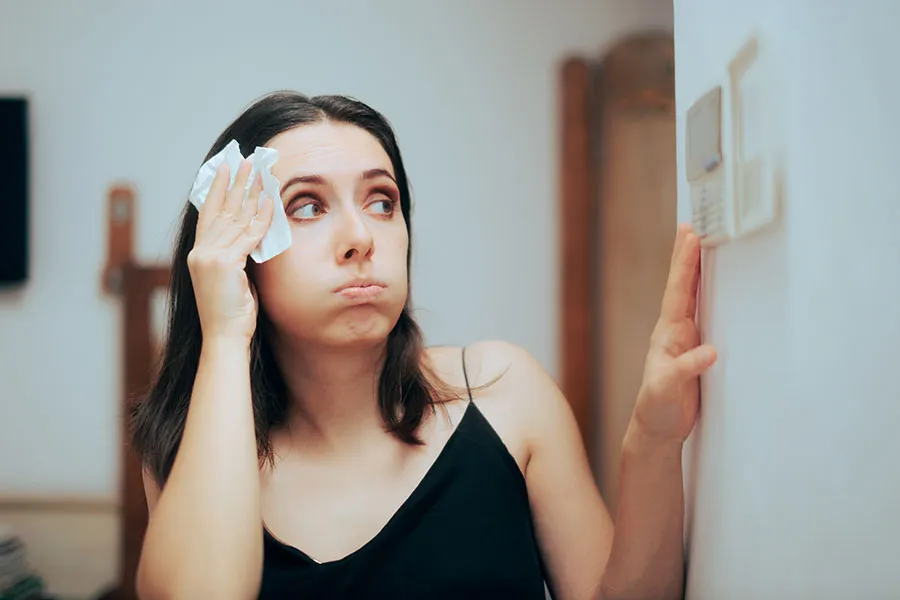What We'll Cover
- An emergency fund serves as financial insurance that can prevent you from accumulating debt during unexpected events.
- Storing your emergency fund in a separate, high-yield savings account helps you keep from spending that money while allowing it to grow.
- Create a budget to determine how much money you can put aside in your emergency fund.
Most of us have experienced some sort of financial emergency and it probably won't be the last time we suffer some sort of money-related setback.
I promise you're not alone. Did you know a 2023 study from Forbes found that 57% of Americans cannot comfortably cover a $1,000 financial emergency?
Why does it feel like we're always unprepared when the next financial emergency hits? Your stress over unexpected expenses changes when you have an established emergency fund.
What is an Emergency Fund?
You can think of an emergency fund as insurance.
If you think about it, insurance costs us money to protect us from life's unexpected events. Well, maybe life's expected unexpected events.
And as you are aware from Murphy's Law: if anything can go wrong, it will go wrong.
This could be a sudden car repair, replacing your hot water heater, treating a pet's illness, or paying your deductible on your next insurance claim.
Whatever it may be, your emergency fund is there to save the day, so you don't go further into debt when you're already inside a financial emergency.
How Much Money Should I Keep in Emergency Savings?
The standard for a healthy emergency fund is to have enough cash set aside to cover between three and six-months' worth of basic expenses.
This could include your mortgage or rent, utilities, food, car payment, insurance, gas for your car, and any other expense that qualifies as a “need” in your life instead of a “want”.
Why only these items?
When you can keep a roof over your head, the lights on, food on the table, and you have transportation to get to work or look for a job, your financial emergency will feel more like a financial hiccup.
Which Type of Account is Best for Emergency Savings?
The best place to start saving an emergency fund is in a savings account .
The key is to park your emergency fund in a savings account and keep it out of sight and out of mind. Don't let this money mix in with your checking account. That way your emergency fund doesn't turn into fancy dinners, new furniture, and trips to Disneyland.
Does it matter what type of savings account you use? Well, a high-yield savings account allows you to store your emergency fund separately while also allowing it to grow. A traditional savings account works great too, but you'll earn a much smaller return on your funds at a slower rate.
Build your Emergency Fund in 3 Steps
Creating an emergency fund can seem overwhelming, especially if you're living paycheck to paycheck. Follow these steps to make things easier for you.
1. Create a Budget and Stick to It
What gets measured gets managed.
The only way to determine how much money is coming in versus how much is going out is to create a budget. Once you know exactly where your money is going each month, it's time to start looking for ways to save so you can give your emergency fund a boost.
2. Create a Monthly Savings Goal
To start you'll need to figure out how much you'd need to cover three to six months' worth of emergency expenses.
Simply look over your budget and find the needs in your life. Add them up and multiply that amount by six to find out how much you'll need for six months of emergency funds.
Then, decide on how many months it should take to build your emergency fund and then set the savings goal for that amount.
For example, if you determine your emergency fund to be $10,000 and you would like to have the emergency fund built within the next six months, then your monthly savings goal would be $1,667.
3. Save More Each Month
Use our Emergency Fund Calculator below to help you see how much you can budget to go toward your emergency savings fund each month. The calculator will show you how long it will take to reach your goal.
4 Ways to Add to Your Emergency Fund
- 1. Sell some stuff:
- Have a garage sale or sell your stuff online. You may be surprised to see how much money you can make by purging items you don't use any more.
- 2. Pick up a side hustle.
- Luckily for those building an emergency fund, there is plenty of opportunity to increase your income through a side hustle. Consider becoming a rideshare driver, delivering food, mowing yards or cleaning pools on the side.
- 3. Adjust your lifestyle.
- While it's not the most fun, briefly adjusting your lifestyle so you can build your emergency fund quicker will be worthit. Life will still go on without cable, weekly restaurant visits, or $5 coffees.
- 4. Adjust your taxes.
- If you consistently get money back after filing your taxes, you can elect to get that money paid to you throughout the year instead of waiting on a refund.
To do this, adjust your tax withholdings by the amount of your refund each year. You can do this using a tax calculator from the IRS to determine how much to adjust your tax withholding so you receive more each month from your paycheck. Use that extra cash to build your emergency fund.
Emergency Fund Calculator
Use our Emergency Fund Calculator to calculate how long it will take you to hit your three- and six-month emergency savings goals.
How good would you sleep at night knowing you have $10,000 set aside for emergencies? As we have learned, it's not if the next financial emergency will occur, but rather when.
Instead of waiting for the expected unexpected to happen to you, prepare for it now and start building your emergency fund today.
APR = Annual Percentage Rate

